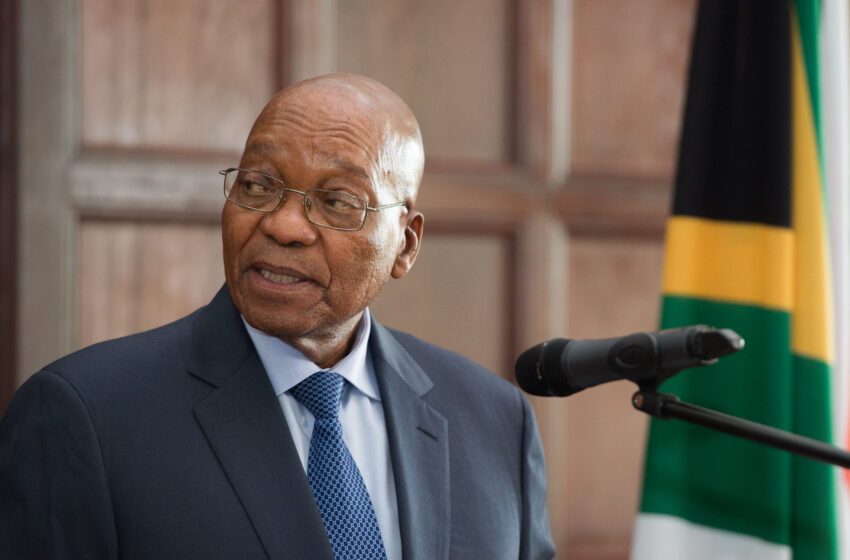Jacob Zuma Morocco move sparks ANC fury over Western Sahara policy shift

Former SA President, Jacob Zuma
Jacob Zuma Morocco move sparks ANC fury over Western Sahara policy shift
Jacob Zuma uMkhonto weSizwe (MK) Party has ignited a storm of political backlash after publicly backing Morocco in the Western Sahara conflict, a move that has enraged the African National Congress (ANC) and raised questions about South Africa’s long-standing foreign policy position on the disputed region.
MK Party Backs Morocco in Diplomatic Shift
The controversy began when the MK Party, led by former President Jacob Zuma, expressed support for a “strategic alliance” with Morocco, a stark departure from South Africa’s traditional alignment with the Sahrawi Arab Democratic Republic (SADR) and its call for independence in Western Sahara.
In a recent policy statement, MK Party officials described Morocco as a “key African partner” with whom they sought to strengthen Pan-African ties and economic cooperation. The party cited “Pan-African solidarity and mutual development goals” as the rationale behind the new foreign policy orientation.
This pivot has been interpreted as an endorsement of Morocco’s claims over Western Sahara, a position long opposed by the ANC-led government.
ANC Labels Zuma a “Sellout” for Abandoning Sahrawi Solidarity
The ANC has responded with sharp condemnation, branding Jacob Zuma a “sellout” and accusing the MK Party of betraying decades of African solidarity with the Sahrawi people.
ANC spokesperson Mahlengi Bhengu-Motsiri said the move was “a disgraceful abandonment of the moral compass” that once guided South Africa’s liberation-era foreign policy. She emphasized that the ANC remains committed to the United Nations-endorsed right of the Sahrawi people to self-determination.
The ANC’s statement also accused the MK Party of “undermining the legacy of the late President Nelson Mandela,” who had championed Sahrawi independence.
Use of SA National Symbols Fuels Further Outrage
Adding fuel to the fire, Zuma’s MK Party reportedly used the South African flag and coat of arms in diplomatic discussions and party statements related to Morocco, without government authorization. The Department of International Relations and Cooperation (DIRCO) has raised concerns over the “unauthorized use of national symbols in foreign engagements,” warning that such actions may mislead international partners into thinking the MK Party speaks on behalf of the South African state.
DIRCO officials also clarified that South Africa’s official position, recognizing the SADR and rejecting Morocco’s sovereignty claims, remains unchanged.
READ ALSO
Judge Mushtak Parker found guilty — Could this misconduct ruling end his career?
FlySafair lockout grounds flights amid escalating pilot strike and wage dispute
Zuma’s MK Party Defends Its Foreign Policy Autonomy
Despite the backlash, Jacob Zuma and MK Party officials have defended their decision as “pragmatic Pan-Africanism.” They argue that engaging with Morocco opens economic and diplomatic avenues that can benefit South Africa and the broader continent.
An MK spokesperson claimed that “new alliances are necessary for a shifting global order” and that the ANC’s foreign policy was outdated and “stuck in Cold War ideology.”
MK supporters insist the move reflects a sovereign political party’s right to define its own international agenda, independent of the ANC’s historical loyalties.
Analysts Warn of Foreign Policy Confusion and Regional Tensions
Political analysts warn that Zuma’s intervention could create foreign policy confusion and weaken South Africa’s diplomatic standing on the continent.
Dr. Sihle Mavuso, a political analyst at the University of Johannesburg, affirms that “parallel diplomacy” by rival parties risks undermining Pretoria’s credibility in the African Union and global diplomatic forums.
“There is a danger of South Africa speaking with two voices,” he said. “That’s a strategic liability.”
A Legacy Battle Ahead of 2026 Elections?
The controversy reflects broader ideological and legacy battles between the ANC and Zuma’s breakaway movement ahead of the 2026 general elections. While the ANC frames the issue as one of principle and continental justice, the MK Party positions itself as a modern, Pan-African alternative capable of realigning South Africa’s global role.
As diplomatic tensions rise and election campaigns intensify, Jacob Zuma’s Morocco gambit could become a defining moment, not just in foreign policy, but in South Africa’s post-ANC political evolution.

